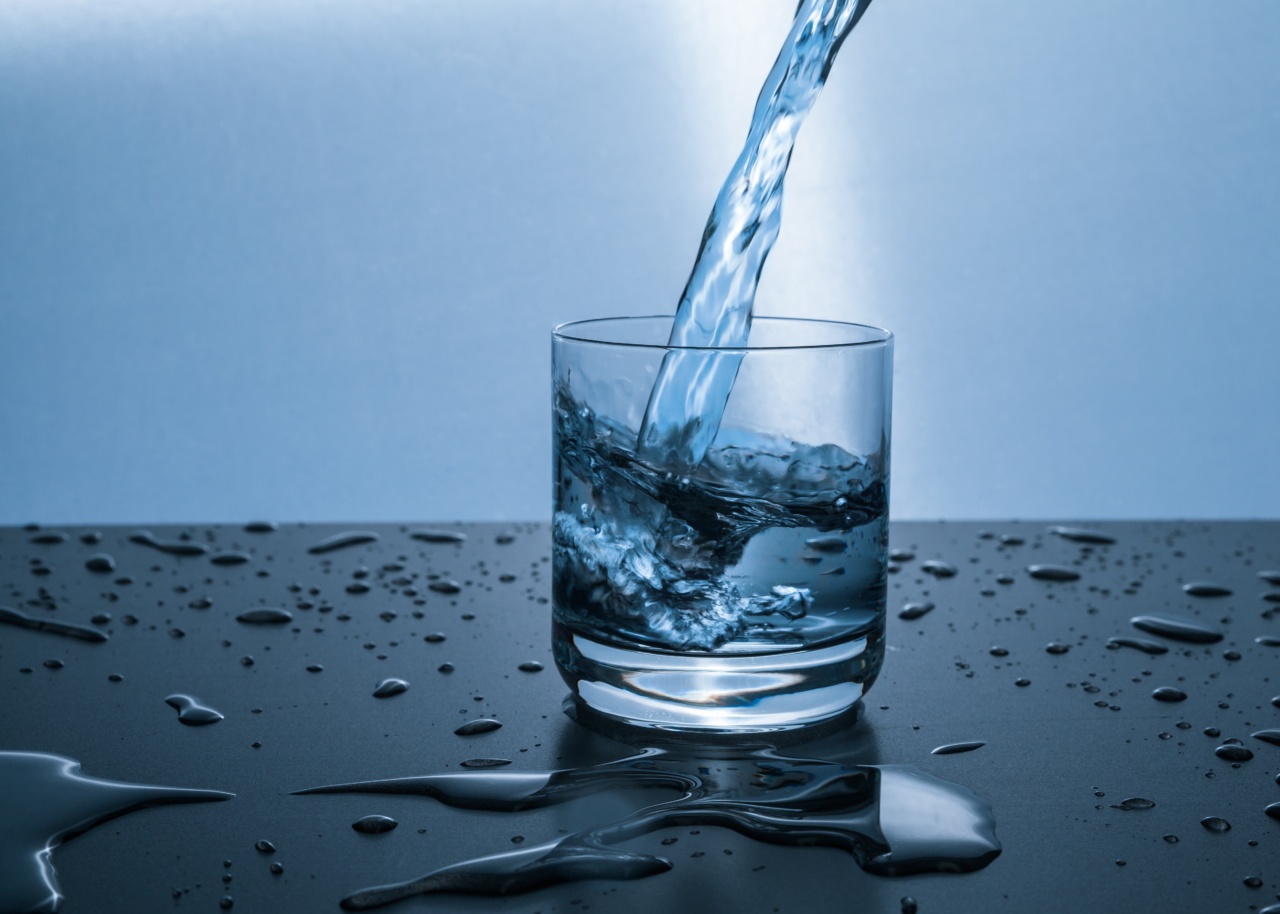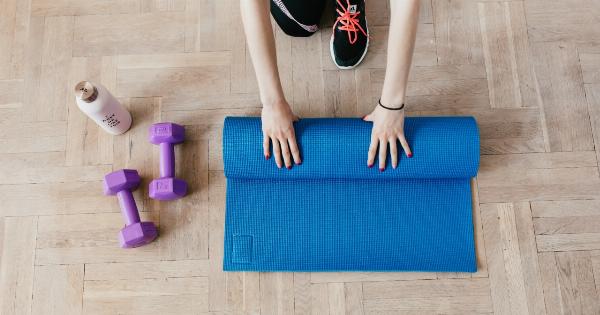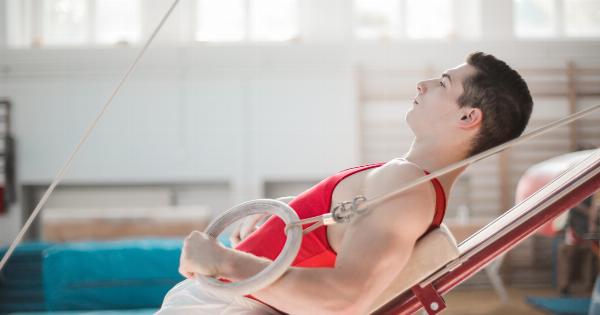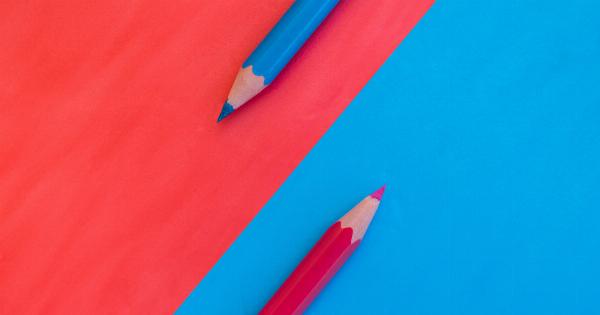Gymnastics is a physically demanding sport that requires strength, flexibility, and endurance. To perform at their best, gymnasts need to take care of their bodies and ensure proper hydration.
Hydration plays a significant role in athletic performance and can affect a gymnast’s energy levels, focus, and overall well-being. In this article, we will discuss the importance of proper hydration for gymnasts and provide tips and tricks to maintain optimal hydration levels during training and competitions.
The Importance of Hydration for Gymnasts
Proper hydration is essential for gymnasts to optimize their performance and prevent the risk of dehydration. Here are some reasons why hydration is crucial for gymnasts:.
1. Improved Performance
Staying adequately hydrated can significantly enhance a gymnast’s performance by improving muscle function and overall endurance.
Dehydration can lead to muscle cramps, fatigue, and decreased strength, which can hinder the ability to perform intricate routines with precision and control.
2. Temperature Regulation
Gymnastics training and competitions often take place in environments that challenge the body’s ability to regulate its temperature. Sweating is the body’s natural cooling mechanism, and water plays a vital role in this process.
When a gymnast is dehydrated, their body’s ability to sweat efficiently is compromised, leading to an increased risk of overheating.
3. Focus and Concentration
Proper hydration is crucial for maintaining mental alertness, focus, and concentration during training and competitions.
Dehydration can cause a decline in cognitive function, impairing a gymnast’s ability to process information quickly, make split-second decisions, and execute routines with precision.
4. Injury Prevention
Inadequate hydration can increase the risk of injuries in gymnasts. Dehydration can lead to muscle cramps, sprains, and strains, as well as impair joint lubrication.
Hydrated muscles and tissues are more supple, reducing the likelihood of strains and contributing to overall injury prevention.
5. Recovery and Healing
Proper hydration aids in the recovery and healing process after intense gymnastics training sessions or competitions. Water helps transport nutrients to the muscles and remove waste products, facilitating their repair and growth.
Additionally, staying hydrated can help prevent delayed-onset muscle soreness (DOMS) and promote faster recovery times.
Tips for Proper Hydration
Now that we understand the importance of proper hydration for gymnasts, let’s explore some tips and tricks to ensure optimal hydration:.
1. Start Hydrating Early
Begin hydrating well before training or competition. Aim to drink fluids throughout the day, especially in the hours leading up to the event. Starting adequately hydrated sets a solid foundation for maintaining hydration levels during physical activity.
2. Monitor Urine Color
Monitoring urine color is an easy and effective way to assess hydration levels. Clear or pale yellow urine indicates proper hydration, while dark yellow or amber-colored urine may suggest dehydration.
Encourage gymnasts to keep an eye on their urine color and make necessary adjustments to their fluid intake accordingly.
3. Drink Water Regularly
Water should be the primary source of hydration for gymnasts. Encourage drinking water regularly throughout the day, not just during training or competitions.
Make sure clean and easily accessible water is readily available at the gym to promote hydration.
4. Hydrate During Training
During training sessions, gymnasts should have water breaks scheduled strategically. Encourage them to drink water during breaks to replenish fluids lost through sweating.
It’s essential to take shorter, frequent sips rather than large amounts at once, as the latter can lead to discomfort during physical activities.
5. Replenish Electrolytes
Intense gymnastics workouts can lead to the loss of electrolytes, which are essential for muscle function.
Encourage gymnasts to replenish electrolytes by consuming sports drinks or electrolyte-rich foods (e.g., bananas, coconut water) after intense training sessions or competitions.
6. Be Mindful of Weather Conditions
Weather conditions can impact the fluid requirements for gymnasts. In hot and humid environments, athletes should increase their fluid intake to compensate for increased sweating.
Encourage gymnasts to drink more water when training or competing in such conditions.
7. Avoid Dehydrating Beverages
Gymnasts should avoid consuming dehydrating beverages such as caffeinated drinks, sugary sodas, and alcohol. These beverages can increase fluid loss and hinder optimal hydration.
Encourage them to choose hydrating options like water, herbal teas, or natural fruit juices instead.
8. Pack a Water Bottle
Make it a habit for gymnasts to pack their own water bottles for training and competitions. Having a personal water bottle ensures easy access to hydration whenever needed. Remind them to refill the bottle when empty without waiting for thirst to strike.
9. Eat Hydrating Foods
Hydration doesn’t solely depend on fluids. Certain foods have high water content and can contribute to overall hydration.
Include hydrating foods like watermelon, cucumbers, oranges, and salads in gymnasts’ diets to provide additional hydration sources.
10. Post-Exercise Hydration
Rehydrating after strenuous physical activity is crucial. Encourage gymnasts to drink water or sports drinks immediately after training sessions or competitions to replenish fluids lost during exercise.
Conclusion
Proper hydration is a vital aspect of a gymnast’s performance and overall well-being. By following these tips and tricks, gymnasts can ensure they are adequately hydrated to optimize their strength, endurance, focus, and recovery.
Remember, staying hydrated is an ongoing effort and requires mindfulness and consistency. Make hydration a priority to help gymnasts reach their full potential!.




























